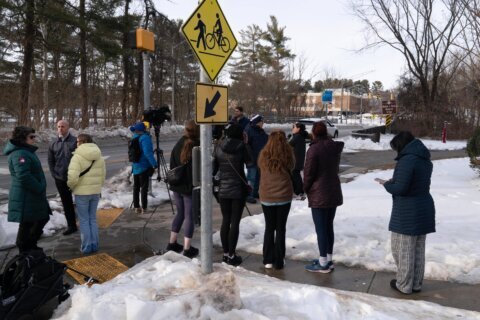Most college students view online courses as less effective than in-person education, and more than 90% believe they should pay less for it, according to a new survey released by the Charles Koch Foundation and College Pulse.
The survey of 5,000 full-time undergraduate college students across 215 universities found that most students think their institution responded effectively to the coronavirus pandemic, and the majority believe online programs could be improved through the use of better technology.
“At a time of unprecedented uncertainty in higher education, it’s more important than ever for institutional leaders to listen to — and prioritize — the voices of their students,” said Ryan Stowers, executive director of the Charles Koch Foundation.
“Online learning has tremendous promise as a tool to help institutions scale high-quality education. This survey makes clear that while many students still prefer in-person learning, the pandemic is creating a renewed sense of urgency among both students and instructors to implement technologies that can facilitate more effective remote learning,” Stowers said.
A majority of students have taken online courses before, including 66% of students at public institutions and 36% of students at private colleges, according to the survey.
The survey found students who had previously taken online courses were significantly more likely to say they were effective than were those with no previous experience with online learning.
More than six in 10 students in the survey indicated that better technology platforms could improve the quality of online programs.
“It’s clear that while students are empathetic to the challenges their schools have faced during the pandemic, they also want colleges to prioritize their post-graduation prospects at least as much as their academic experience,” said Terren Klein, CEO of College Pulse.
“Crises like this one create both challenges and new opportunities for institutional leaders — and results like these may point the way for colleges to re-imagine their approach to serving students in the months to come,” Klein said.
One unidentified survey respondent who attends Clemson University said: “Universities should lower tuition since online classes have way less overhead, but I think the big low hanging fruit is not charging fees. At Clemson, for example, they charge so many fees and a lot has to do with facilities that they probably won’t leave open.”
Another unidentified survey respondent who attends Clarkson University said: “I have too many engineering labs left in my major to switch to online classes. I don’t know if I will even stay in the program at this point. Maybe I will just take a gap year.”
The survey also found:
- When asked how well their college or university responded to the coronavirus outbreak, nearly seven in 10 students said their school did an excellent (23%) or a good (46%) job. Around half of students (46%) said most of their professors were able to effectively transition from in-person classes to online instruction.
- Helping students find jobs and lowering the price of expensive textbooks were students’ top priorities for their institution in the wake of the pandemic. Most students said that incorporating more online tools and courses should be a high priority, though just 21% of respondents marked it as the highest priority.
- Nearly six in ten students (59%) said getting the credentials they needed for their future career was one of the most important reasons they decided to attend college.
The survey was designed and conducted by College Pulse and funded by the Charles Koch Foundation.
- Sign up for WTOP alerts
- Johns Hopkins faculty pushes against cuts prompted by pandemic
- Roanoke College plans layoffs, spending cuts due to virus
- How Virginia Tech hopes to convince returning students to respect social distancing
- Latest coronavirus test results in DC, Maryland and Virginia
- Coronavirus resources: Get and give help in DC, Maryland and Virginia
Looking for more information? D.C., Maryland and Virginia are each releasing more data every day. Visit their official sites here: Virginia | Maryland | D.C.
Results of the survey are based on interviews conducted from May 26 to May 28.
Five thousand undergraduates who are currently enrolled full-time in two- and four-year degree programs in the U.S. were sampled.
The margin of error for the U.S. undergraduate population is +/- 1 percentage point, and the margin of error for college student sub-demographics range from 2 to 5 percentage points.
The survey was drawn from College Pulse’s American College Student Panel, which includes more than 385,000 undergraduate students representing more than 1,000 two- and four- year colleges and universities in all 50 states.
The panel includes students attending large public universities, small private colleges, online universities, historically black colleges and religiously affiliated schools.








